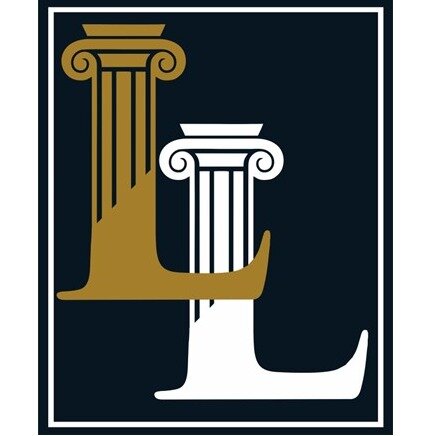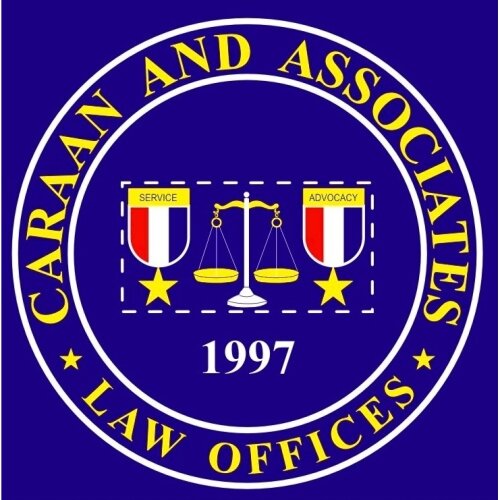Best Water Law Lawyers in Manila
Share your needs with us, get contacted by law firms.
Free. Takes 2 min.
List of the best lawyers in Manila, Philippines
About Water Law in Manila, Philippines
Water Law in Manila deals with the regulations and policies governing the control, use, allocation, and management of water resources. These laws ensure the equitable distribution of water for personal, commercial, agricultural, and industrial purposes within the city and its surrounding areas. Given Manila’s dense population and rapid urbanization, managing water resources is crucial to prevent contamination, shortages, and conflicts over usage rights. Water Law interacts with environmental law, property law, public health, and urban development, making it an essential legal area for residents, businesses, and local authorities alike.
Why You May Need a Lawyer
Legal issues relating to water in Manila can be complex and affect both individuals and businesses. Common situations where professional legal assistance might be necessary include:
- Disputes over water rights or allocation between neighbors, subdivisions, or commercial entities
- Challenges relating to water utility services, such as billing issues or service interruptions
- Concerns over water source contamination affecting health and property
- Conflicts involving land development and compliance with water-related environmental regulations
- Advisory needs for businesses seeking permits for water extraction or discharge
- Assistance in understanding new regulations or compliance requirements issued by the government
If you find yourself embroiled in any of these situations, a lawyer with water law expertise can help navigate regulatory processes, protect your rights, and resolve disputes efficiently.
Local Laws Overview
The key framework governing Water Law in Manila is the Philippine Water Code (Presidential Decree No. 1067), supplemented by local ordinances and national laws like the Clean Water Act (Republic Act No. 9275). These statutes cover critical areas, including:
- Water rights and permitting requirements for extraction or use of surface and groundwater
- Protection and sustainability of water sources to manage supply and prevent pollution
- Regulation of water utilities in Metro Manila, primarily operated by Manila Water Company, Inc. and Maynilad Water Services, Inc., under contract with the Metropolitan Waterworks and Sewerage System (MWSS)
- Sanctions and penalties for illegal water connections or pollution
- Guidelines for the siting and development of wells, storage, and wastewater discharge
- Rights and obligations of consumers and providers
Local and national government agencies, such as the Department of Environment and Natural Resources (DENR) and Local Government Units (LGUs), have powers to enforce water-related regulations and issue necessary permits.
Frequently Asked Questions
What is the process for obtaining a water permit in Manila?
Applicants must submit the required documents to the National Water Resources Board (NWRB), which reviews, evaluates, and grants permits for the appropriation and use of water resources.
Am I allowed to dig a private well on my property?
Private individuals or businesses must secure a water permit from the NWRB before drilling wells, and compliance with local zoning and environmental requirements is necessary.
What can I do if my water supply has been unreasonably interrupted?
You can file a complaint with your water service provider as well as with the MWSS Regulatory Office if the issue is not resolved promptly.
How can I report suspected illegal water connections?
Reports can be made directly to your water service provider or the MWSS for investigation and appropriate action.
What laws protect drinking water quality in Manila?
The Philippine Clean Water Act and local ordinances ensure the protection, monitoring, and quality standards for drinking water supplies.
Who is responsible for wastewater treatment?
Water concessionaires like Manila Water and Maynilad are primarily responsible for wastewater collection and treatment, subject to regulatory oversight by the MWSS and DENR.
Is rainwater harvesting regulated in Manila?
Rainwater harvesting is encouraged, but large-scale systems may require permits and must comply with local building and sanitation codes.
What should I do if my neighbor’s activities are contaminating shared water sources?
You may seek the assistance of local barangay authorities, file complaints with the DENR, or consult a lawyer to pursue legal remedies for damages or injunctions.
Are there penalties for polluting water sources?
Yes, violations of water pollution laws carry administrative fines, civil liabilities, and possible criminal penalties under the Clean Water Act and the Water Code.
Can commercial establishments draw water directly from rivers or lakes?
Commercial users need to obtain water rights and the necessary permits from the NWRB before extracting water from natural sources. Unauthorized extraction is illegal.
Additional Resources
If you seek more information or help regarding Water Law in Manila, consider turning to these organizations:
- National Water Resources Board (NWRB): Handles water permits and administration of water resources.
- Metropolitan Waterworks and Sewerage System (MWSS): Regulates water and sewerage service providers in Metro Manila.
- Department of Environment and Natural Resources (DENR): Oversees environmental quality, including water pollution control.
- Local Government Units (LGUs): Implement and enforce local water ordinances and manage community water sources.
- Integrated Bar of the Philippines (IBP): Can provide referrals to qualified Water Law practitioners.
Next Steps
If you believe you need legal assistance related to Water Law in Manila, start by identifying the specific issue or query you face. Gather relevant documents such as contracts, bills, correspondence, or permits. Reach out to the appropriate authority or regulatory body if the matter involves government compliance or public services. When the situation is complex or you cannot resolve it through administrative channels, consult a lawyer specializing in Water Law. Look for practitioners with local experience, and do not hesitate to ask questions about their background in handling water-related cases. Taking timely action and professional advice can protect your rights and help you navigate the intricacies of Water Law in Manila effectively.
Lawzana helps you find the best lawyers and law firms in Manila through a curated and pre-screened list of qualified legal professionals. Our platform offers rankings and detailed profiles of attorneys and law firms, allowing you to compare based on practice areas, including Water Law, experience, and client feedback.
Each profile includes a description of the firm's areas of practice, client reviews, team members and partners, year of establishment, spoken languages, office locations, contact information, social media presence, and any published articles or resources. Most firms on our platform speak English and are experienced in both local and international legal matters.
Get a quote from top-rated law firms in Manila, Philippines — quickly, securely, and without unnecessary hassle.
Disclaimer:
The information provided on this page is for general informational purposes only and does not constitute legal advice. While we strive to ensure the accuracy and relevance of the content, legal information may change over time, and interpretations of the law can vary. You should always consult with a qualified legal professional for advice specific to your situation.
We disclaim all liability for actions taken or not taken based on the content of this page. If you believe any information is incorrect or outdated, please contact us, and we will review and update it where appropriate.















